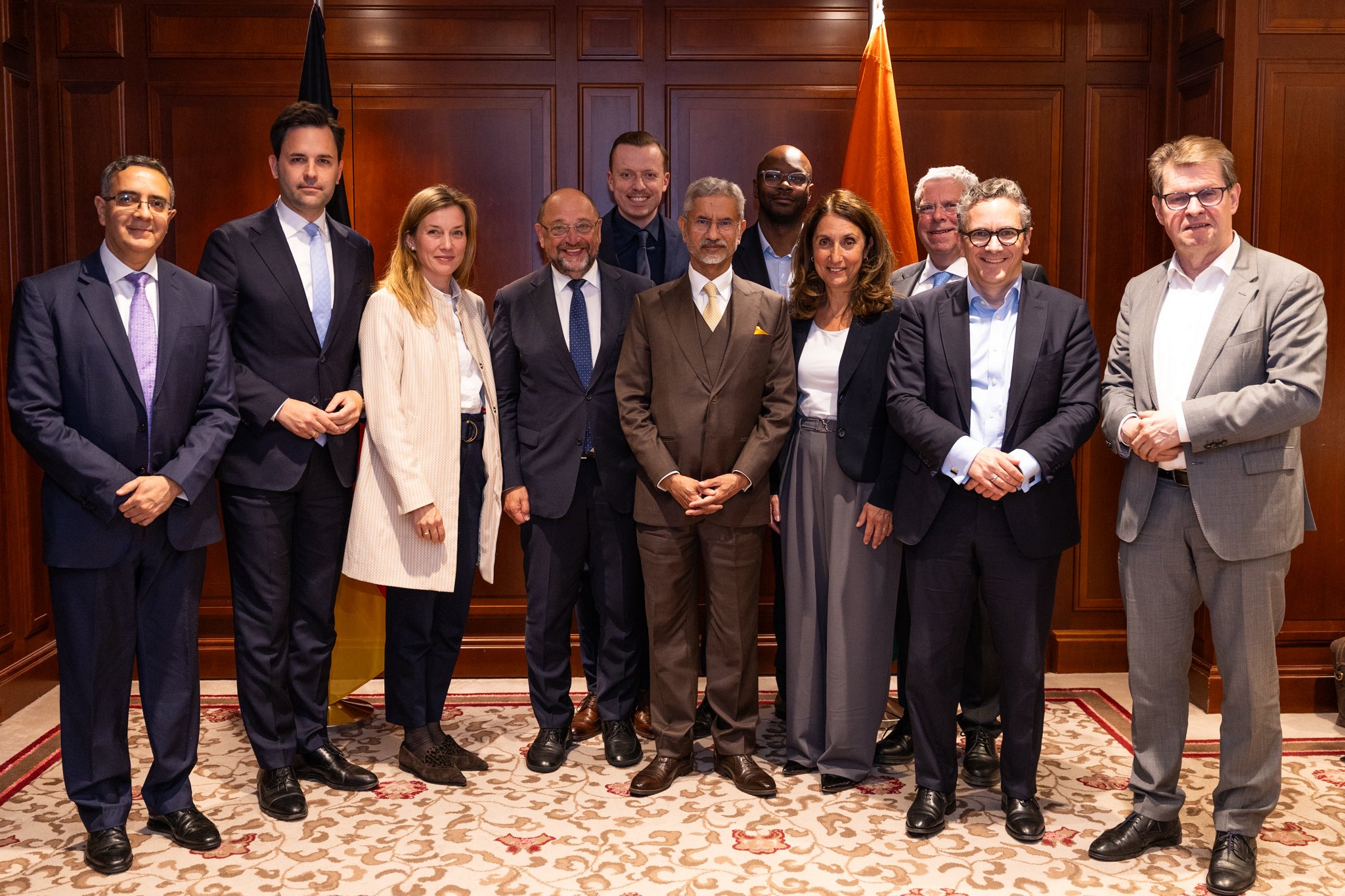Berlin Hosts Key Diplomatic Meeting as India Strengthens Global Outreach
In a significant diplomatic engagement, Berlin served as the final stop for External Affairs Minister S. Jaishankar on his three-nation tour covering the Netherlands, Denmark, and Germany. The visit concluded with high-level discussions and regional coordination meetings involving Indian Ambassadors posted across Europe, with a strong focus on counter-terrorism and regional stability.

|
| Image Source: MEA/FM on X |
Speaking to Dutch broadcaster NOS earlier, Jaishankar clarified that the recent ceasefire between India and Pakistan was not a product of international mediation, but the result of direct communication between the two militaries. “The cessation of firing and military action was something which was negotiated directly between India and Pakistan,” he stated. According to officials, the process was triggered by a hotline call from the Pakistani military on May 10, followed by a formal response from India.
Jaishankar noted that while the United States, Gulf countries, and others expressed concern and reached out to both parties, the final agreement to halt hostilities was solely a bilateral decision. “We made it very clear—to the United States and others—that if Pakistan wanted to stop the firing, their general had to call our general. And that is what happened,” he said.
This ceasefire came after tensions escalated sharply following a terror attack on April 22 in Pahalgam, Jammu and Kashmir, which claimed 26 civilian lives. India responded with Operation Sindoor on May 7, targeting nine terrorist camps in Pakistan and Pakistan-occupied Kashmir. Indian military sources reported that over 100 militants affiliated with groups such as Jaish-e-Mohammed, Lashkar-e-Taiba, and Hizbul Mujahideen were eliminated.
Pakistan retaliated with shelling across the Line of Control and attempted drone incursions, prompting further Indian strikes on radar sites, airfields, and communication infrastructure. On May 10, India launched a broader air campaign targeting eight Pakistani airbases, after which the ceasefire took effect.
Later in Berlin, Jaishankar held a constructive dialogue with members of the German Bundestag, expressing appreciation for Germany’s support in strengthening bilateral relations. The discussions covered key areas such as trade, technology, and security, with a particular focus on India’s counter-terrorism stance.
A good interaction with members of German Bundestag this evening in Berlin.
— Dr. S. Jaishankar (@DrSJaishankar) May 22, 2025
Appreciate their strong support for continued growth of India-Germany relations.
Also discussed with them India’s firm commitment of combatting terrorism in all forms and manifestations.
🇮🇳 🇩🇪 pic.twitter.com/Vd4bZcuDzq
The Berlin leg also aligns with India’s broader diplomatic outreach following Operation Sindoor. Parallel engagements, such as the Raisina Tokyo 2025 dialogue, reflect India's intent to bolster multilateral cooperation in the Indo-Pacific and beyond.
These coordinated efforts reinforce New Delhi’s strategy to assert its role as a reliable global partner while tackling transnational security threats through direct dialogue and strategic diplomacy.
